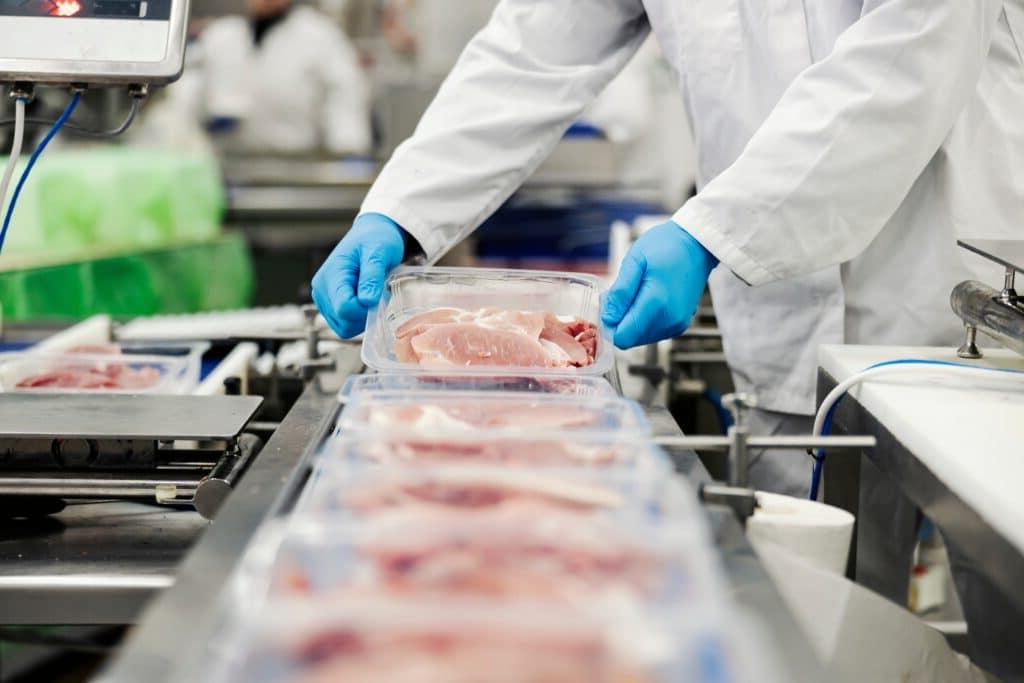The Importance of Weighing in Food Manufacturing
Why Weigh?
Weighing is an essential part of the food production process. Weighing applications can be found across every processing plant. These weighing applications can be found as early in the production process as the weighing of incoming products on the receiving dock to the weighing and labelling of finished good’s boxes going into inventory. Weighing ingredients for quality compliance is extremely important. This is because ingredients must be weighed to fulfill product recipe specifications and quality requirements. Measuring ingredients with extreme accuracy ensures they are distributed equally, and the product tastes the same in every batch.
Food scales help processors adhere to production requirements and reduce the risk of creating out-of-spec product. Out-of-spec product can jeopardize the health of consumers and subject processors to fees for non-compliance with foodservice regulations. To avoid out-of-spec product, processors must invest in accurate, high-quality food scales.
Scales for the Food Processing Industry
Floor Scales
Floor scales can be found in multiple areas of a food processing plant. They are used on receiving docks to weigh incoming pallets of product. This ensures what was received matches what was ordered. Floor scales are also found in production areas of the plant. Processors use them to weigh larger products like combos, steel bins of product, and trollies.
Bench Scales
The ideal method of weighing for food production is using a bench scale that has high readability and a lower capacity. In other words, bench scales for food processing should be highly precise and able to weigh small individual food items with a high degree of accuracy. To achieve optimal results, processors should avoid scales that weigh in larger increments, for example, five pounds instead of one gram.
Counting Scales
Counting scales allow processors to efficiently weigh a high volume of identical parts. This is useful in food production where the same ingredient may be used repeatedly in a batch. Using a counting scale to weigh ingredients ensures the final product is consistent and of high quality.
Checkweighers
A useful weighing feature that enhances efficiency in packaging and sorting procedures is a checkweighing scale, or simply “checkweigher.” Checkweighers allow users to select a weight range and, in turn, accept or reject a product based on whether or not its weight falls within the predetermined range.
Testing Food Processing Scales
Scales are often the last piece of equipment to be suspected—or inspected—when there is an issue related to out-of-spec product. For this reason, scale inspection and testing should be scheduled regularly to meet the accuracy requirements for a product. The higher the accuracy requirement, the more likely it is the material being weighed will be out of tolerance, and the more frequent the testing of the scale should occur.
When testing the accuracy of food processing scales, it is important to consider external factors that could impact your equipment’s performance, such as food buildup. Avoid inaccurate weight readings by clearing the scale of food or liquid that may have accumulated during production. Precautionary measures such as frequent cleaning, combined with regular scale testing, can reduce the likelihood of out-of-spec product.
Carlisle Technology works with some of the most reputable scale manufacturers in the industry to combine comprehensive scales with our high-tech software solutions ideal for weighing food product. We integrate our iCap software program with advanced weighing equipment to offer both static and fully automated systems.
Visit duz3.electronic-fittings.com/weighing-systems to learn more about how we can help you improve your product quality.
Written by Rice Lake Weighing Systems www.ricelake.com
Sign Up for Our Newsletter!
Receive updates on products, customer stories, and giveaways!
By submitting this form, you are consenting to receive marketing emails from: . You can revoke your consent to receive emails at any time by using the SafeUnsubscribe® link, found at the bottom of every email. Emails are serviced by Constant Contact



